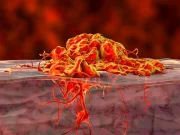Epigenetic age acceleration significantly greater among non-Hispanic Black versus non-Hispanic White survivors
By Elana Gotkine HealthDay Reporter
TUESDAY, July 9, 2024 (HealthDay News) — For childhood cancer survivors, there are racial and ethnic disparities in epigenetic age acceleration (EAA), which are partially mediated by social determinants of health (SDOH), according to a study published online July 2 in JAMA Network Open.
Cheng Chen, from The Fourth Affiliated Hospital of Soochow University in Suzhou, China, and colleagues compared non-Hispanic Black to non-Hispanic White survivors of childhood cancer by examining the associations of EAA with cancer treatment exposures and mediating roles of SDOH in a cross-sectional study. Data were included for 1,706 survivors, including 230 and 1,476 non-Hispanic Black and non-Hispanic White survivors, respectively.
The researchers found that EAA was significantly greater among non-Hispanic Black versus non-Hispanic White survivors (adjusted least-square means [ALSM], 1.41 and 0.47, respectively). Among non-Hispanic Black survivors, EAA was significantly increased among those exposed versus unexposed to chest radiotherapy (ALSM, 2.82 versus 0.46); among those exposed versus unexposed to alkylating agents (ALSM, 2.33 versus 0.95); and among those exposed versus unexposed to epipodophyllotoxins (ALSM, 2.83 versus 0.44). The association with epipodophyllotoxins differed by race and ethnicity (β, 2.39 and 0.68 years for non-Hispanic Black and non-Hispanic White survivors, respectively). Educational attainment and socioeconomic area deprivation index mediated racial and ethnic disparities in EAA (mediation, 22.71 and 22.16 percent, respectively).
“This finding suggests that changes in the social support system at both the personal and community levels may mitigate socioeconomic disadvantages that may contribute to the development of an aging phenotype,” the authors write.
Copyright © 2024 HealthDay. All rights reserved.



















